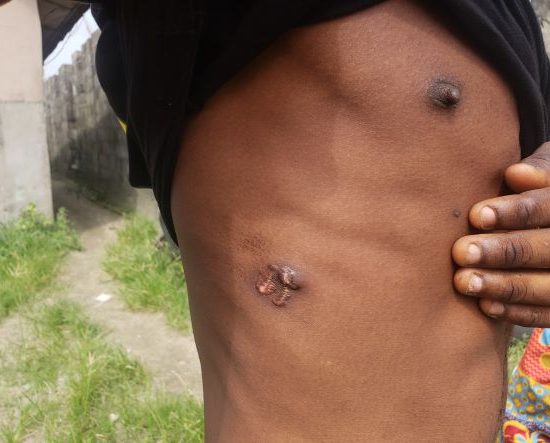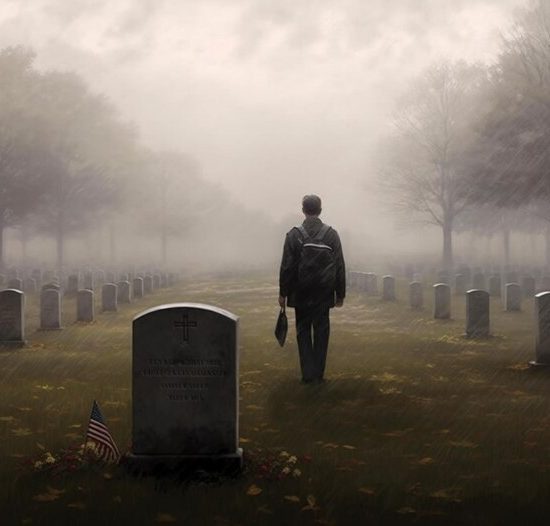Anthony: I wanted to repatriate some money from Nigeria. It was just by coincidence, so when I logged on to the account, it said the account is dormant. I contacted customer care, they said I would have to fill a form, I was doing this and sending everything that I had to my account officer. I called to ask if my account is now active and he started asking me who the person was and he said that the person came forward with a document to the bank that you are her husband and you are dead.
Narrator: That’s shocking, right? This reporter is sure that Anthony is not dead because he interviewed him. How it happened is what you will find out in the podcast. How Anthony was certified dead even when he is very much alive.
Welcome to Kara House, an investigative podcast that sheds light on issues affecting you and me. Investigative reporter, Tobi Oyetunde, spent over 4 weeks finding out how government hospitals connive with fraudulent individuals to issue death certificates of people who are still very much alive like it happened to Anthony.
There is a lot of noise in some of these clips because the reporter got them while undercover.
Olumide: What do you want?
Narrator: That is Olumide. Olumide is a dark and chubby young man who works at a state hospital, Ota, Ogun state. This reporter had been told during his research that he would be the right person to assist him in getting death certificate without going through the usual protocol in the hospital.
Reporter: I want to collect a death certificate.
Olumide 2: Death certificate, who died?
Reporter: My father.
Narrator: The reporter gave Olumide a fictitious name, Babatunde Fatoki, who he claimed to be his father. The story the reporter gave Olumide is that Fatoki had slumped at work and was transported to his village where he was buried. To ascertain the acclaimed person is truly dead, Olumide should have asked for a cause of death, which is usually issued to the deceased family by the hospital that certified that the person is dead or a court affidavit sworn by the relative stating when and how the person died. Olumide did not ask for any of these documents. Olumide agreed to issue a death certificate for Fatoki and he charged 10,000 Naira.
Olumide 3: Normally, for somebody that dies here, a death certificate is written for N7,000 but for someone that did not die here I will tell them that I know you. If I go to talk with him, he can collect N10,000 from you if you want to do it.
Narrator: The reporter found out during his interaction with Olumide that this was not the first time he issued a death certificate without necessary documents.
Olumide: Some people are alive and come to collect death certificates, it is somebody that will go to prison. I have been to Alagbon before on this issue.
Narrator: This was how Anthony’s account got frozen. Someone who knows him well got a fake death certificate and presented it to his bank.
Olumide asked the reporter to come back the next day for the certificate, and true to his word, the document was ready in a little less than 24 hours. He got a death certificate for a fictitious name, supposedly his father. The certificate claims that Babatunde Fatoki, aged 58, died of cardiac arrest on the 26th of october 2023. The certificate has no name of a medical doctor, but has the signature stamp of the Chief Medical Officer (CMO) of the hospital.
Break: YOU’RE LISTENING TO CERTIFIED DEAD AN INVESTIGATIVE STORY FROM KARA HOUSE.
Narrator: You have heard how this reporter got a death certificate for a non-existing Babatunde Fatoki from State Hospital, Ota, Ogun state. The reporter wanted to prove how common this fraudulent practice is so he went to another state-owned hospital in Lagos.
Narrator: His next stop is Orile Agege General Hospital, Lagos. Getting to the hospital, he approached the Admin Department where he was directed to meet one Kunle.
Narrator: Kunle asked why the death certificate was needed and the reporter gave him the same story he had given at the Ogun state hospital. Just like Olumide, Kunle was reluctant at first but would later agree to issue one to the reporter for a fee.
Kunle: You said you want to take it to the bank, right?
Reporter: Yes
Kunle: Has he collected anything from the hospital when he died before he was buried?
Reporter: No
Kunle: Has he not been buried?Reporter: He has been buried
Kunle: Was he buried at home?
Reporter: No, in the village.
Kunle: When he was being carried home, was anything taken along like the cause of death?
Reporter No, we have not collected anything.
Kunle: Was he driven in an ambulance?
Reporter: No, inter-state bus.
Narrator: After some minutes of interrogation, Kunle agrees to help with obtaining a death certificate despite not seeing the corpse as against medical practice.
Kunle What will happen is that you will first collect cause-of-death and it will be used to collect the death certificate.
Reporter: How will I get the cause of death?
Kunle: I will do everything for you. I will do the cause-of-death and the death certificate but it will cost you N15,000.
Just to be clear. Both Olumide and Kunle have committed offences of forgery under section 467 of the criminal code act in Nigeria and are punishable by imprisonment for three years.
Vitalis: The Nigeria Medical Council can seize the certificate of the erring doctor and they can ban him for some time.
That is Dr. Vitalis (who wished not to give his last name). He is a medical doctor who owns a hospital in Lagos State. He said that it is a serious offence for doctors to issue a death certificate without first seeing the corpse for examination.
Vitalis: Not only verification, you must sight the corpse to confirm. You must confirm that the person is dead, put your stethoscope to the heart, and check the vital sign.
Ufeli: It is wrong for a doctor or a hospital to issue such a certificate when the corpse is not seen.
Narrator: That is Evans Ufeli, a constitutional Lawyer in Lagos.
Ufeli: The legal implication is that forgery is three years imprisonment when it has been investigated and the person in question has been convicted.
Narrator: If you have been following this story, the reporter successfully established how hospital staff issue death certificates without proper verification. To show how commonplace the practice is, Tobi decided to go to a third hospital.
Ifako Hospital Staff : We can not just give you a death certificate like that.
Narrator: That is a staff of General Hospital, Ifako Ijaiye, Lagos.
Ifako Hospital Staff: There are processes that we need to follow before you can get a death certificate. First of all, you need an affidavit that he has died from the magistrate or a high court and two passport photographs.
Narrator: This staff insisted on seeing a court affidavit and two passport photographs of the deceased before she can start the process. Just to be clear, this is what Olumide and Kunle could have asked for – a proof of death.
Ifako Hospital Staff: You need those so that it will be legal that he has died and so that it will prevent any type of problem. I need those things to process the death certificate and without those things, I can’t give you.
Narrator: The ease of getting a death certificate without providing all necessary documents is quite alarming. Not every hospital staff would be like that of Ifako General Hospital. There are many Olumides and Kunles in several institutions across the country. and the implication of this is dire.
Narrator: Anthony’s death certificate was forged by scammers to enable them to get access to his bank account with millions of naira in it.
Anthony: They targeted the account because I wasn’t really doing anything with it. I believe mine was definitely someone within the bank that pulled it off, that basically extracted my personal information that was on there and was able to use it to obtain a death certificate, a court affidavit and things like that. The only thing I can say is that all fingers point to the banking sector and bank workers. What they said is that since the documentation is coming from the court, they have no option than to respect the court document.
Anthony: For three months, I was basically in a limbo, I couldn’t call money back, it was a stressful moment for me.
Narrator: That is Anthony the voice you heard at the beginning of this story
Anthony: Not just financial stress, but mentally, and then also having to hire a lawyer and having to defend my own integrity that I am alive because the bank was actually giving benefit of doubt to people who had submitted fake documents. They were treating me like I was a criminal. The bank has to do way more, the bank has a fiduciarry duty to their customer which is to protect their money. I think there is a need to verify, don’t trust, verify.
Ufeli: There should be a national database, we don’t have it and if we don’t have it, anything can be forged from the top.
Narrator: That is Lawyer Ufeli again.
Ufeli: If the person did not die in that hospital, by law, they are not supposed to issue a death certificate. So, when hospitals go ahead to issue a death certificate when the patient was brought to them or when they did not see the patient, it is still original but it is false.
Narrator: Tobi brought the activities of Olumide and Kunle to the state hospital, Ota, Ogun state and Orile Agege General Hospital, Lagos but they both declined. Efforts to reach the ministries of health in both Lagos and Ogun states also proved abortive.
You have just listened to ‘Certified dead’, Kara House’s Original Documentary. The story was reported and produced by Tobi Oyetunde. Sound mixing was done by Daniel Akinbusoye. It was edited by Banjo Damilola.




